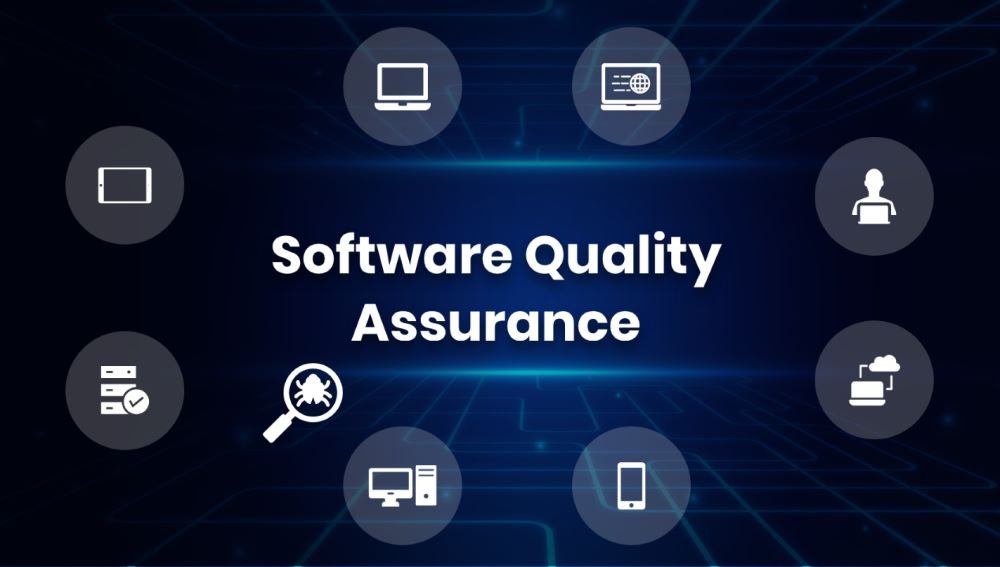Software Quality Assurance is an integral part of software development. As the demand for more efficient and refined software products increases, every software testing company is looking to raise its standards for Quality Assurance. SQA deals with maximizing the overall software activities, methods, and processes from the initial development stage to the latest deployment stage.
The potency of software testing services in this day and age is unmatchable. Its incorporation is not only beneficial but also necessary to keep up with the rising merit of top software products. Not only that but to meet the expectations of the customers is also a crucial aspect that needs to be taken into consideration.
Long gone are the days when programmers depended on manual testing or focused on finding and fixing bugs after the development process of a product. Software development in 2024 has a unique advantage: it has automated QA to rely on. It is highly efficient, and entirely in tune with the increasing demands of technology.
In the future, we should watch for the inevitable enhancements that SQA will undoubtedly make. With its ever-evolving qualities, QA has unquestionably planted its roots in the modern age, and it will continue to deepen with time.
As we delve into the second half of 2024, a number of trends in Software Quality Assurance have emerged. Let’s take a detailed look at some of them and discuss how companies can benefit from them.
AI/ML
AI and ML are powerful tools that have made their presence known globally, revolutionizing various industries. In the realm of software quality assurance (SQA), the inclusion of AI/ML has drastically shifted how we perceive and handle software testing. Their integration has introduced groundbreaking capabilities like predictive analytics, automated testing, intelligent defect detection, and even self-healing systems. This fusion has not only improved the quality and reliability of software products but has also streamlined the testing process by reducing manual intervention. AI/ML has enhanced SQA by increasing efficiency, improving point accuracy, accelerating testing cycles, and ultimately contributing to faster, more reliable software releases.
DevOps and Agile
These SDLC methodologies facilitate faster and more efficient workflows by integrating continuous testing, development, and deployment processes. Moreover, they promote automation and real-time feedback exchange among developers, testers, and clients, ensuring that any issues are identified and addressed promptly. By adopting DevOps and Agile, companies can significantly improve the agility, efficiency, and quality of their software products, resulting in faster delivery cycles, better alignment with client needs, and a more competitive edge in the market.
Security Testing
The utilization of security testing tools is in high demand as organizations become more aware of the growing threats in the digital landscape. As technology advances, both its positive and negative consequences emerge, with cyber threats and data vulnerabilities becoming more frequent and sophisticated. Therefore, it is crucial for QA professionals to implement robust security measures to safeguard software applications. Security testing ensures that potential risks are identified and mitigated, protecting sensitive data and maintaining the integrity of applications in today’s increasingly connected world.
Cloud-Based Testing Platforms
Cloud-based testing platforms have revolutionized software quality assurance, offering a more efficient and streamlined approach. These platforms enable teams to collaborate globally in real time, making it easier to run tests from anywhere in the world. By prioritizing scalability, profitability, and accessibility, cloud platforms provide flexibility and cost-effectiveness that traditional testing methods lack. Moreover, cloud-based testing tools have revamped the testing environment, ensuring consistency, reliability, and faster testing cycles, which leads to quicker software releases and improved overall performance.
Ethical Considerations
With every developmental stage of SQA, newer ethical concerns will arise. Integration of AI and other technologies can also pose a threat to the realm of software development. Hence, it is pertinent to abide by a certain set of rules and regulations in order to ensure security, transparency and legality.
Using data ethically, safeguarding privacy, and objectively using AI algorithms are concerns to be kept in view when proceeding with any software development project. Fairness and accountability are imperative strands of ethics that also demand acknowledgment.
Conclusion
It is no doubt that QA has continually evolved to meet the changing demands of each era since its introduction into the software development process. Today, with its advanced methodologies, automation tools, and comprehensive testing services, QA plays an indispensable role in ensuring software quality, performance, and security. By integrating QA into the early stages of development, companies can minimize risks, enhance user experiences, and deliver reliable, high-performing software products, making it an essential component of successful software development projects.
















Leave a Reply